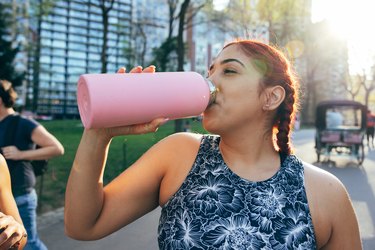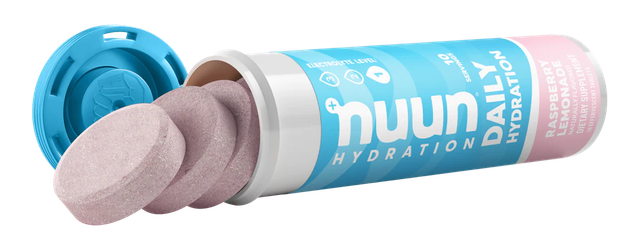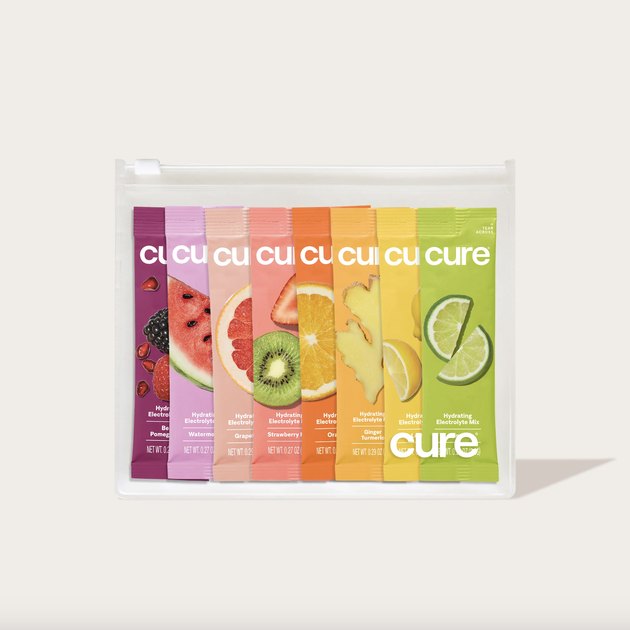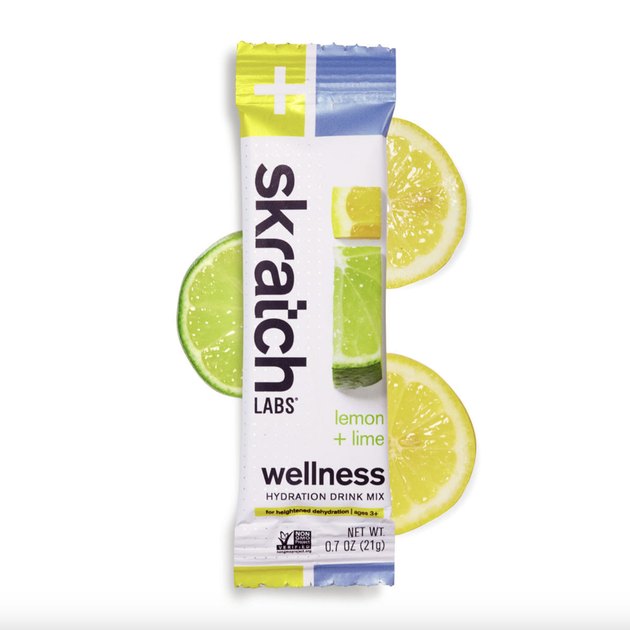
Both water and electrolytes are vital for overall health. While there are trace amounts of electrolytes in water, it's not enough to cover your daily needs. Simple tricks, such as adding a pinch of salt and lemon juice to plain water, can help maintain fluid and electrolyte balance in the body.
Tip
Homemade electrolyte drinks tend to be lower in sugar than sports beverages. Depending on your preferences, you can either mix electrolyte powder into water or add all-natural ingredients, such as lime juice, ginger and salt, to make your own electrolyte replacement drink.
Video of the Day
Why Are Electrolytes Important?
Magnesium, calcium, sodium, potassium and other electrolytes support the proper functioning of your cells and tissues. They help transport nutrients, balance your pH levels and remove waste from your system. These minerals also maintain normal fluid levels in your body, as the U.S. National Library of Medicine points out.
Video of the Day
Electrolyte imbalances are often to blame for muscle cramps, abdominal pain, mood swings and cardiovascular problems, among other issues. Low potassium levels, for example, may affect your heart rhythm and muscle function. Too much potassium, on the other hand, may cause heart palpitations, arrhythmia and even paralysis, according to the National Institutes of Health.
One way to keep your electrolytes in balance is to consume foods and beverages containing these nutrients. However, certain factors can affect your electrolyte levels. Vomiting and diarrhea, intense exercise, chronic respiratory disorders and some medications, such as diuretics, are just a few examples.
Sports drinks may help restore your electrolyte balance. The downside is that they tend to contain a lot of sugar in order to replace carbohydrates lost during exercise.
Depending on their ingredients, these beverages can be just as harmful as soda. When consumed regularly, they may cause you to pack on pounds and increase your risk of diabetes, gout, heart disease and premature death, warns the Harvard T.H. Chan School of Public Health.
It's possible to bypass that and make a delicious, healthy electrolyte drink at home. There are hundreds of recipes that take minutes to prepare. All you need is water and electrolyte powder, tablets or natural ingredients like sea salt and lemon juice.
Adding Electrolyte Powder or Tablets
Electrolyte powders are widely available in most health stores and pharmacies. In general, these products and other oral electrolyte solutions are recommended in case of diarrhea and other conditions that may cause dehydration. It's also a good choice for athletes and active individuals who may lose water and electrolytes during intense exercise.
These nutrients are available in tablet form, too. You've probably seen those bottles containing effervescent tablets in different flavors. Just dissolve them in water, and you'll get a refreshing, healthy drink that keeps you hydrated and balances your electrolyte levels.
Whether you prefer electrolyte powder or tablets, it's important to note that their quality and composition vary among brands. Ideally, choose a formula with no added sugars. If you're sensitive to stimulants, look for caffeine-free electrolyte powders and tablets. Some of these products are designed for athletes and tend to be higher in electrolytes.
Our Favorite Electrolyte Powders
Intense workout? You'll likely want to combine electrolytes and carbohydrates for replenishing. Try one of our favorite sports drinks.
Using Natural Ingredients
Some foods, such as citrus fruits, are naturally rich in electrolytes and can be mixed with water. Lemon juice electrolytes, for instance, include calcium, potassium, magnesium and small traces of sodium. Orange juice is slightly higher in calcium and magnesium. Grapefruit juice is the highest in calcium.
Mix a half cup of fresh citrus juice with one or two cups of water. Add a pinch of salt to get more sodium in your diet. Sea salt, for example, provides 590 milligrams of sodium per quarter teaspoon. The American Heart Association recommends 1,500 to 2,300 milligrams of sodium per day. Too much of this mineral may increase your blood pressure and cause fluid retention, so consume it in moderation.
The experts at Arizona State University have shared a few recipes for homemade electrolyte water. They recommend using natural ingredients, such as coconut water, lime juice, pomegranate juice and grated ginger.
Homemade Electrolyte Drink
Want to try making your own? Here's a simple recipe.
- 3 cups of mineral water
- juice from one lemon
- 1/4 teaspoon of salt
- 2 tablespoons of agave nectar
- 1/2 teaspoon grated ginger
Combine all ingredients in a jar, stir well and enjoy. If you're on a diet or trying to cut down on sugar, replace agave nectar with stevia, a natural sweetener.
You may also add coconut water to the mix. A half-cup boasts 7 percent of the daily recommended intake of magnesium, 6.5 percent of the daily recommended potassium intake and 2 percent of the daily recommended amount of calcium. It also delivers 126 milligrams of sodium — that's about 5.5 percent of the daily recommended allowance. Just make sure you choose a brand with no sugar and artificial flavors.
- U.S. National Library of Medicine: "Fluid and Electrolyte Balance"
- Roswell Park: "Electrolytes — What Are They? What Happens If You Don't Have Enough?"
- Piedmont Healthcare: "Signs You Have an Electrolyte Imbalance"
- NCBI: "Electrolytes: Oral Electrolyte Solutions"
- USDA: "Nutrition Facts for Orange Juice"
- USDA: "Nutrition Facts for Grapefruit Juice"
- USDA: "Sea Salt"
- American Heart Association: "How Much Sodium Should I Eat per Day?"
- Arizona State University: "Healthy Devils: Electrolyte Drink Recipes for Staying Hydrated"
- USDA: "Coconut Water"


